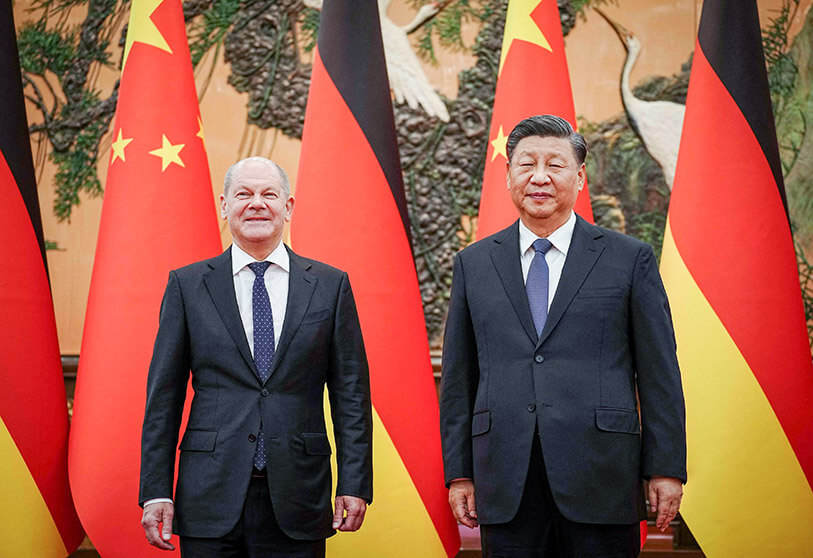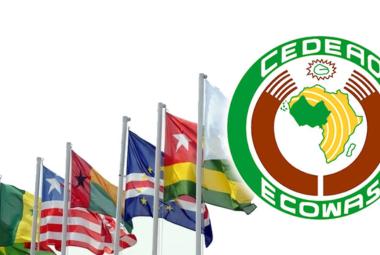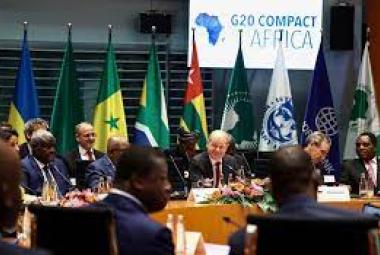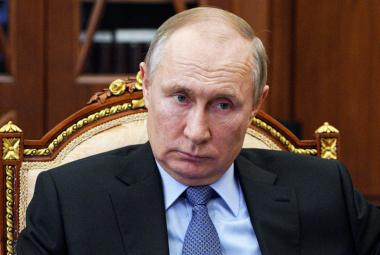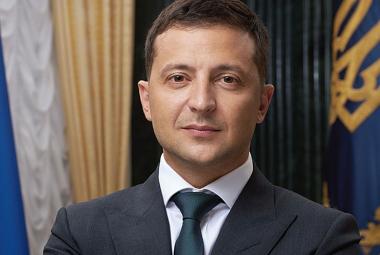German Chancellor Olaf Scholz will have been the first G7 leader to visit China since the start of the COVID-19 pandemic. A visit under the fire of many critics during which a large delegation of companies from his country was at his side. But if many have strongly criticized this visit, the question that we are also entitled to ask ourselves in good conscience is to know if he really had a choice…
In the Swiss newspaper Le Temps, the National Councilor PLR of Vaud, Olivier Feller, published an opinion under an uncompromising title L'Allemagne droguée à la Chine (Germany drugged to China) in which he highlights the fact that: "The recent visit of Olaf Scholz in Beijing was uninspired, the recent history of China shows that it is not very prudent to entrust him with even a part of our security or our supplies”. This choice of title was intended to highlight the growing economic dependence of Berlin, which is increasing with regard to Beijing. A reality that makes many of Germany's European partners fear. Especially when we know that, at the same time, the nationalist ambitions of Xi Jinping's China are also getting stronger. As we saw during the 20th congress of the Chinese Communist Party which was held from October 16 to 22.
Indeed, criticism long before and long after this visit will be etched in the political annals of German history is not lacking. And they are not going to end with the end of said visit, however brief it was.
For his part, the German Chancellor, Olaf Scholz, considered that his visit to China was justified for obvious reasons. "I think in light of all the debate about whether it was the right thing to do this trip or not, the fact that the Chinese government, President (Xi) and I were able to say that no nuclear weapons should be used in this war, for that alone, this trip was worth it”. So spoke Olaf Scholz during a meeting of the German Social Democrats in Berlin, following his meeting with President Xi Jinping on November 4 in Beijing.
For many, between Olaf Scholz and President Xi Jinping, the balance of benefits from this visit tipped heavily in favor of China. The German Chancellor had little to gain from this except criticism and misunderstanding of Germany's China policy by Western leaders. And especially the citizens of the European Union in these times of invasion of Ukraine by Russia. Especially since the Germans themselves have not had a good image of China for a long time now, unlike many citizens of other European countries.
In a world where political diktat increasingly tends to be substituted by economic diktat, one wonders if Olaf Scholz really had a choice. Beyond any political considerations or pure polemics.
Due to its exceptional position as the second largest economy in the world, all countries need to maintain relations with Xi Jinping's China, despite its nationalism. You just need to know which is the red line not to cross. On Friday, November 4, the Chinese President, Xi Jinping, had these words that speak for themselves when receiving the German Chancellor in Beijing: “Destroying mutual political trust is easy, rebuilding it is difficult”. However, this is not enough to eliminate the gap that separates China from Europe on many issues. And it is absolutely necessary to let China know this.
It's not just Europeans who took a dim view of Chancellor Olaf Scholz's visit to China. As true as it is, there are many things to reproach Xi Jinping's China for, if only from a human rights point of view. So much so that the nagging question that also arises is how to maintain friendly relations with a country that does not have a friendly policy towards the West. If the hostility of the United States towards China is unambiguous for reasons of political and economic rivalry, the European Union must walk on a ridge line vis-à-vis China. By asserting its personality both with regard to the United States and China.
By Daniel Yaoni



